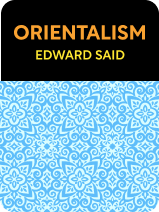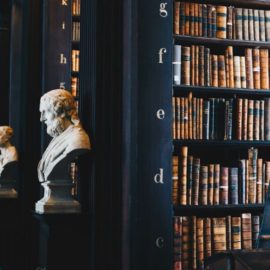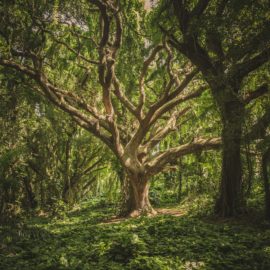

This article is an excerpt from the Shortform book guide to "Orientalism" by Edward Said. Shortform has the world's best summaries and analyses of books you should be reading.
Like this article? Sign up for a free trial here .
What is Orientalism? How does Edward Said define the concept?
It is difficult to be precise about the answer to the question “what is Orientalism?” Edward Said uses the term in three interdependent senses: 1) Orientalism as a scholarly discipline, 2) Orientalism as a mode of thought based on the essential East-West divide, and 3) Orientalism as a political ideology.
Keep reading for Edward Said’s answer to the question: what is Orientalism?
What Is Orientalism?
The concept of Orientalism was coined by the late Edward Said, a Palestinian-American academic who founded the discipline of Postcolonial Studies. In its broadest sense, Orientalism is the framework through which Western writers, policymakers, and the general public have interpreted and defined “the Orient” (the eastern part of Asia).
According to Said, the key insight is that Orientalism does not reflect objective truth. Instead, it is an invention of the Western mind. The central premise of Orientalism is that the Orient is a fundamentally different, exotic, dangerous, unchanging, and “other” place. This concept of a foreign and strange East forms a set of cultural, political, religious, and linguistic contrasts which, in turn, has enabled the “West” to think of itself as a distinct—and superior—entity.
Said (1935-2003) had the intellectual framework of Orientalism impressed upon him from birth. As an Arab Palestinian educated in Palestine and Egypt (both of which were British colonies at the time), who then went on to an academic career in literature and postcolonial studies in the United States, Said always felt himself to be straddling the Eastern and Western parts of his identity. Despite his success, Said always had a keen awareness of his identity as an “Oriental.” His book Orientalism is his exploration of the origins, development, and implications of this manufactured “otherness” that he experienced so deeply.
“The West” (by which we refer primarily to Europe and North America) in turn forged its historical identity against the foil of the East or Orient. This identity was typically expressed as one of superiority and dominance over the Orient, which Western writers, travelers, and, later, imperialists reduced to a series of crude and reductive stereotypes and generalizations. The West was Christian where the Orient was Islamic; its people were Nordic where those of the Orient were Semitic; it was liberal, democratic, and rational where the Orient was backward, despotic, and emotional.
Even generalized terms like “West,” “East,” “Orient,” and “Occident” are products of Orientalism, artificially separating complex cultures into monolithic, separate, and opposed moral spheres. (“Occident” is the Latin-derived term for the Western world, the counterpart to the Eastern “Orient.”) These concepts reduce the complexity of diverse human societies, languages, cultures, and histories into near-meaningless generalities that ultimately serve to obscure the humanity of the people to whom they refer.
In the end, Orientalism represents the interpretation and creation of the Orient—by Westerners, for Westerners. The people of the Orient themselves have had little agency in the creation of Western narratives about them.

———End of Preview———
Like what you just read? Read the rest of the world's best book summary and analysis of Edward Said's "Orientalism" at Shortform .
Here's what you'll find in our full Orientalism summary :
- How Western society invented the concept of Orientalism
- Why "the Orient" was thought of as a different, exotic, and dangerous place
- How Orientalism was central to European colonialism






